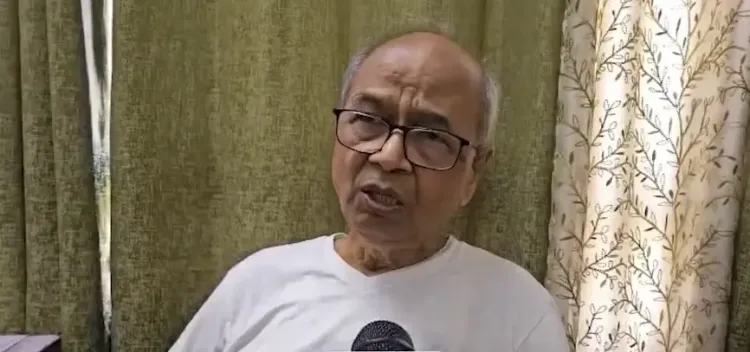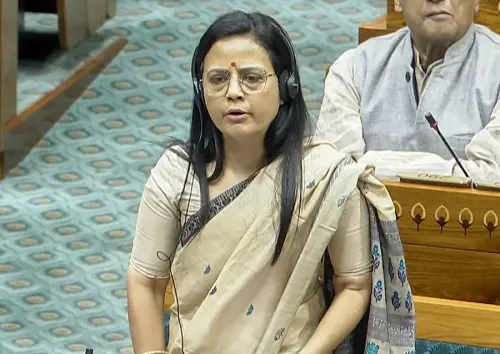Was it divine intervention that led Rakesh Kishore to throw a shoe at CJI Gavai?

Synopsis
Key Takeaways
- Rakesh Kishore's actions stemmed from feelings of injustice.
- The incident raises questions about the intersection of law and personal beliefs.
- Due process concerns were highlighted in the context of his suspension.
- The response from the judiciary can significantly impact public perception.
- Religious sentiments play a crucial role in public interest litigations.
New Delhi, Oct 7 (NationPress) Rakesh Kishore, the lawyer who threw a shoe at Chief Justice of India (CJI) B.R. Gavai during proceedings at the Supreme Court on Monday, asserted on Tuesday that this action was beyond his control, claiming it was a result of divine will.
“I am not responsible for this. It was the Lord who compelled me to act,” Kishore stated to IANS.
In an exclusive interview following the incident, Rakesh Kishore expressed, “Everything I did was dictated by my Lord. I acted not out of free will, but according to divine intention. There is a significant message in my actions, which I intend to clarify.”
Referring to a Public Interest Litigation (PIL) that CJI Gavai presided over on September 16, Kishore disclosed that he felt profoundly distressed by the court's approach.
“I am unaware of who submitted the PIL or the attorney involved. However, the case pertained to the reinstatement of a desecrated 7-foot statue of Lord Vishnu in Khajuraho, which was damaged during an invasion. I have wept at that temple; I understand the pain. Yet, instead of taking appropriate action, the CJI remarked, ‘If you are a devotee, ask your God to restore it.’ I felt humiliated and perceived it as a severe injustice,” Kishore expressed.
He also condemned the CJI's recent statement that “the country cannot operate with bulldozers,” asserting it indirectly targets government-led initiatives.
“We are all aware of where bulldozer operations are occurring. Having grown up in Bareilly, I have witnessed individuals constructing hotels on illegal lands. If CM Yogi does not intervene, who will?” he remarked.
“I stated this in court, and I will reiterate -- India will not tolerate the insult of Sanatan Dharma,” Kishore emphasized.
Regarding his suspension, he commented, “The Bar Council, under Chairman Manan Kumar Mishra, issued a suspension letter to me last night. I can present the letter. This is not merely an order; it is a tyrannical decree.”
He alleged that proper legal procedures were not adhered to.
“According to Section 35 of the Advocates Act, 1961, any disciplinary action requires a show cause notice, followed by a hearing with the disciplinary committee. None of this occurred. They did not summon me or establish any committee. If I contest this, nothing will change. Justice will always favor their associates,” he conveyed to IANS.
“If they have resolved to destroy my career, then so be it,” he concluded.










